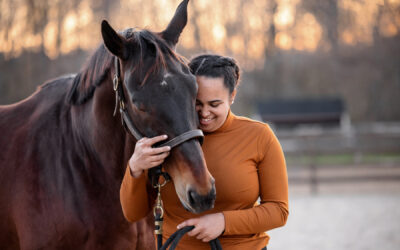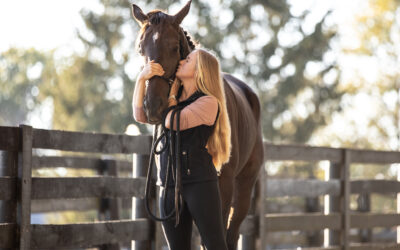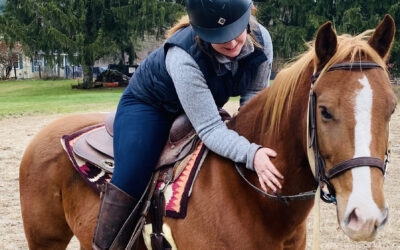Blog
Veterinarians as Stakeholders
While at a veterinary meeting in Colorado last year I learned about the WaterShed Animal Fund, a division within the Arnall Family Foundation, and its funding of the Denver Dumb Friends League Harmony Equine Center. I was very impressed with the positive impact on the lives of companion animals and their owners facilitated by this funding. At the same meeting I was introduced to The Right Horse Initiative and was intrigued by their mission statement: “Our goal is to massively increase the number of successful horse adoptions in the United States by working together to reframe the adoption conversation and shatter the stigma surrounding horses in transition.” In particular, the words “horses in transition” caught my eye. To me, this implied the existence of a “plan,” of “moving toward a destination.” In short, it conveyed optimism that there is a future for many of the thousands of horses whose present circumstances are uncertain – as well as opportunities for companionship, personal development and learning for their future human caretakers.
As an equine practitioner in rural New England for over 45 years, I have witnessed an increase in the number of horses whose owners could no longer afford even their basic care as well as horses who no longer could meet their owners’ performance expectations. Sadly, I have also seen an increase in cases of neglect – something almost unheard of in my practice experience decades ago. As a member of the American Association of Equine Practitioners (AAEP), which is also a partner of The Right Horse, I have been privileged to serve on a variety of AAEP initiatives intended to improve the welfare of equids, both in North America and abroad, as well as representing our AAEP for six years on the American Veterinary Medical Association’s (AVMA) Animal Welfare Committee. Through these experiences, I have learned that the horse (or donkey or mule) “in transition” is rarely an animal with no potential to contribute valuable companionship to a grateful owner or rider, even if they are no longer able to perform as a serious athlete or work animal.
At our home in northern Connecticut live our two donkeys, Honus and Zoe. They transitioned from a wonderful rescue program in New Hampshire – the Save Your Ass Long Ear Rescue – to begin their new career as predator control for our sheep and goats. In addition to their effectiveness in keeping the coyotes away, they provide loving companionship for our family. We never think of them as having previously been “unwanted” but rather “unemployed”!
Over my years in practice I have worked with horses in therapeutic riding programs, the Special Olympics and both city and state mounted patrols. Nearly all of the horses were in transition prior to entering these programs. Many more live as beloved companions to families, providing their owners with unique benefits that enhance the quality of life for all involved. To persons facing exceptional challenges daily, thousands of horses provide physical and emotional therapy. The Special Olympics, Muscular Dystrophy Association, United Cerebral Palsy, Multiple Sclerosis Society, Spina Bifida Association and the Wounded Warrior Project are only some of the respected organizations that recognize and utilize the unique healing benefits derived from the companionship between a horse and a human. Again, before working in their new careers these were horses in transition. Does that make them “no longer wanted”? Just ask that question of a handicapped child or a disabled veteran whose lives these horses enrich daily.
As a result of these experiences throughout my career, I found the positive philosophy of The Right Horse to be very appealing and was honored when invited to join The Right Horse Veterinary Advisory Council. The Council is made up of five veterinarians who have decades of experience and leadership in veterinary medicine, specifically equine welfare, and serve as advisors to TRH programs and partnerships. Equine practitioners are uniquely placed to help horses in transition to find appropriate homes, owners and careers. The results of doing so are beneficial not just to the horse but to its new human companions as well. I encourage all horse doctors to visit therighthorse.org/veterinarians to learn more about ways they can help horses in transition.


